Pelumi Nubi, a British-Nigerian creative, first caught global attention with her solo “London to Lagos” road trip, a bold journey that showed wanderlust with a sense of mission. Today, she continues that momentum through One Week In, a travel docuseries co-created with Africell. But this isn’t just another influencer travelogue. Through her lens, and often, through the voices of the locals she meets, Pelumi captures the nuance, joy, and everyday brilliance of African destinations too often overlooked or misunderstood.
We caught up with Pelumi at a pivotal moment in her journey. Fresh off premieres in London and The Gambia, she opened up to us about everything from rethinking her PhD to pursue her passion, to navigating identity on the move, and the hard-earned joy of building something that feels meaningful. We talked about the myths that still shroud travel in Africa, the balance between staying rooted and staying curious, and why the magic really is in the doing.
This conversation is for anyone dreaming of adventure, or wondering what it means to take ownership of their story.
What first sparked your love for travel, and how has it changed over the years?
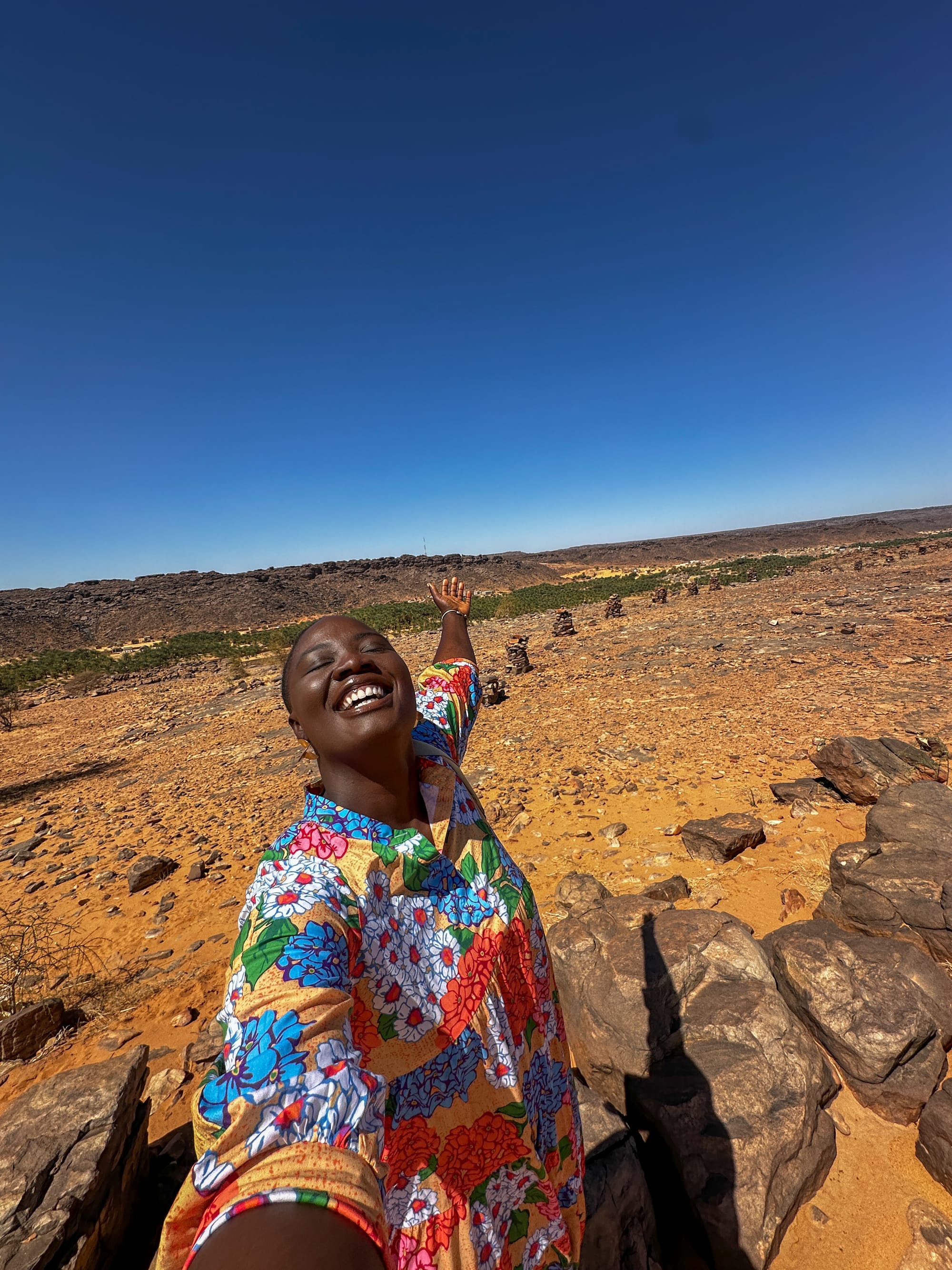
I’ve always enjoyed travelling. I think my mom gave me the travel bug. She also loved exploring. My first international trip was to the US to visit cousins, so family travel was kind of the big one at first. As I got older, I started thinking about how big the world is and how much there is to see. I remember reading a quote that really stuck with me: "If we were meant to stay in one place, we’d have roots like trees." The fact that we have feet means we’re meant to explore. I love the joy, the discovery, the newness that comes with travel. In day-to-day life, it’s easy to go into autopilot, but being in a new place almost forces you to slow down and really take things in. I think that’s such a gift, it’s the kind of experience that keeps on giving.
Travel became a big part of my life from quite a young age, but it became more intentional when I got to university. I started seeing opportunities to travel through exchange programs and similar things, I took them and loved every bit of it. Then, of course, 2020 came along. It was a pivotal year for a lot of people. For me, it was the one thing none of us could do: travel. And that’s when I realised just how much it meant to me. Sometimes, it takes losing something to realise how important it truly is. From that point on, I kind of became a full-time traveller and I’ve been travelling ever since.
That’s a beautiful way to see life. Would you say your perspective has evolved from when you were just travelling with family to now, travelling full-time?
My travel style is definitely more off the beaten path. I like doing things that aren’t part of the usual “top 10 things to do” or checklist-type experiences. I’m really into cultural immersion; seeing places from the perspective of local people rather than through my own foreign lens. I also really enjoy the freedom this job gives me. One day I could be in one country, and a few hours later, I might be on another continent. It’s wild to think that I actually get to call this a job. There have been so many incredible opportunities that come with it. Of course, there have been tough moments, it’s not all glamorous, even though that’s what people tend to see. It can be challenging, but honestly, the advantages far outweigh the downsides. And yeah, it’s just something I truly love. I don’t think I’ll ever stop travelling. I just love the thrill of trying new things and experiencing something completely different.
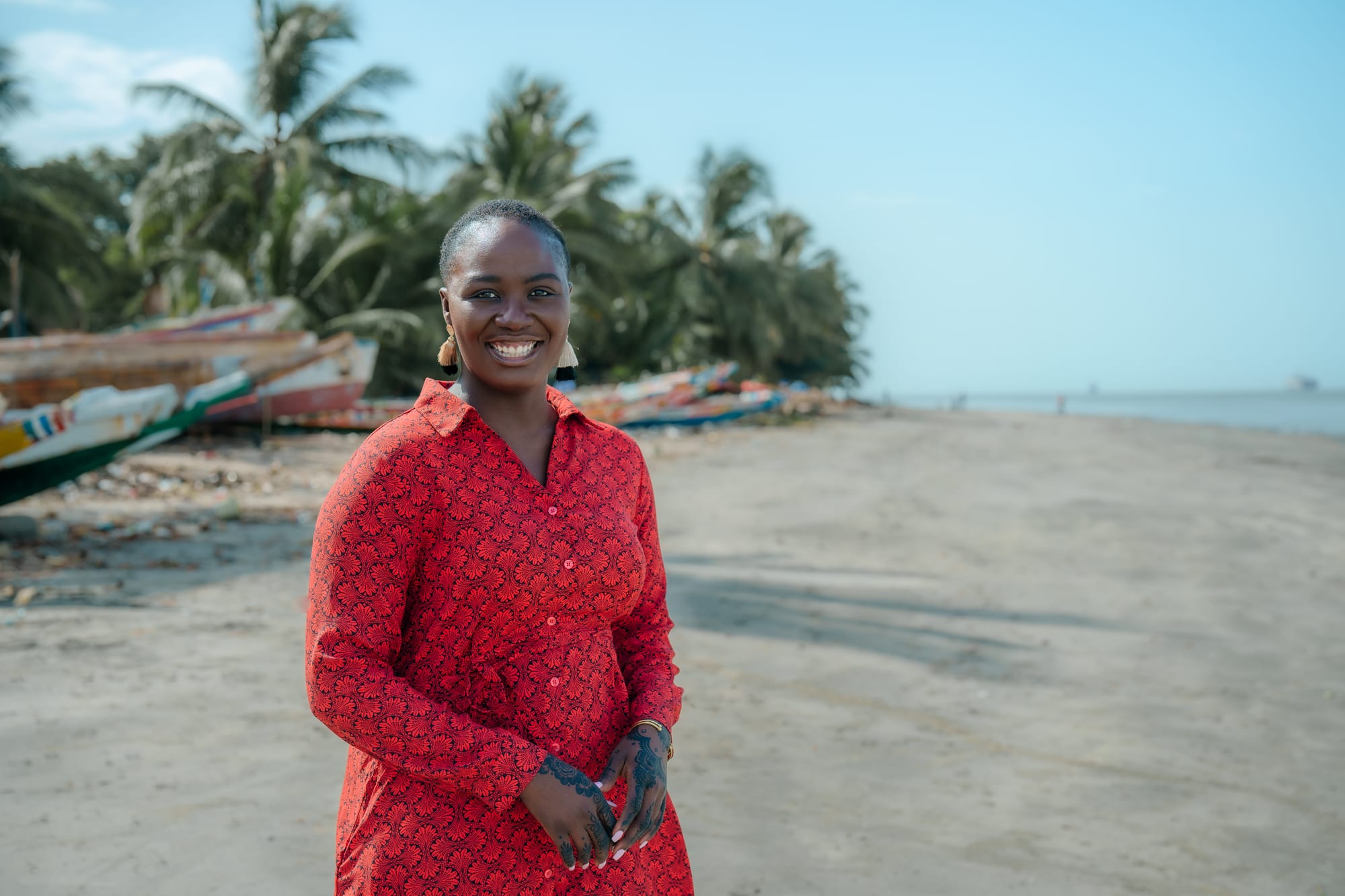
How has moving from one city to another shaped your perspective on identity and belonging? And how do you own your identity when you're on the move?
I think I have a really strong foundation when it comes to being Nigerian. My parents did a great job of instilling that sense of identity of who I am and where I come from, with a strong cultural grounding. At the same time, travelling opens you up. You start to realise that, really, we’re more similar than we are different. There’s so much overlap in the human experience; the desire to love and to be loved. Every day becomes a teachable moment when you travel. You’re constantly learning something new, and it humbles you. It reminds me that I don’t know everything. Whenever I’m in a new place, I find myself in that constant learning phase, and I think that’s one of the true joys of travel, it’s one of the best teachers. You learn things you’d never pick up in a classroom like how to manage people, understand different cultures, and adapt.
Open-mindedness is a big part of travelling for me, but so is holding onto my cultural roots. That grounding definitely comes from my upbringing and is something my parents continue to reaffirm. They’re both still alive and doing well, and they often remind me of where I come from and what truly matters, those core values. So for me, it’s about picking the things that align with my own values. We don’t always have to see eye to eye, but we can still respect each other’s views. It’s a constant balancing act. I don’t always get it right, sometimes I drop the ball, but I think what matters most is being intentional about finding that balance.

You left a PhD program to pursue travel full-time. Do you ever reflect on that decision? And would you say that travel has been its own kind of education?
So, I didn’t just leave. The lab actually faced a shutdown because of the pandemic; we all know what happened in 2020. After that, it became a question of whether I wanted to restart the program or move on. So, it wasn’t a case of me simply walking away. It was a lot more complicated than that, if that makes sense.
Is travel a form of constant education? I’d say absolutely yes. You’re right, travel does provide an education. For context, I was in the program for quite a while before the lab closed. And I always tell people, skills are transferable. When I was planning my London to Lagos trip, the level of research involved was intense, and it directly pulled from my academic background. That PhD experience gave me the ability to take massive amounts of information and condense it into something simplified and actionable. So, nothing was wasted. In a way, I think I went through that phase just to pick up those exact skills that now serve me in my travel life. I always tell people: first, think about what brings you joy because life is so short. And second, understand that life has chapters. In some cultures or upbringings, we’re made to feel like failures when we step away from something or try something new. But that’s part of the journey. Even some of the greatest people in history dropped out or realised they needed to pivot. They didn’t fail—they adapted.
So, yes, to answer your question, travel is very much an education. The things I’ve learned on the road are things you won’t find in any curriculum. It’s that real-world knowledge, the kind that connects you to people in ways you wouldn’t expect. I mean, one of my favourite things is being in a conversation where I can talk about football, fashion, a random natural phenomenon, or even a local tribe’s culture. People’s eyes light up when you know how to say hello in their language. That kind of connection? You can’t fake it. Travel has given me that. It’s a gift, truly. And I always encourage people; if you can, do it. It’s worth it.
What inspired you to start your own travel show, and how exactly do you think this would shift the narrative?
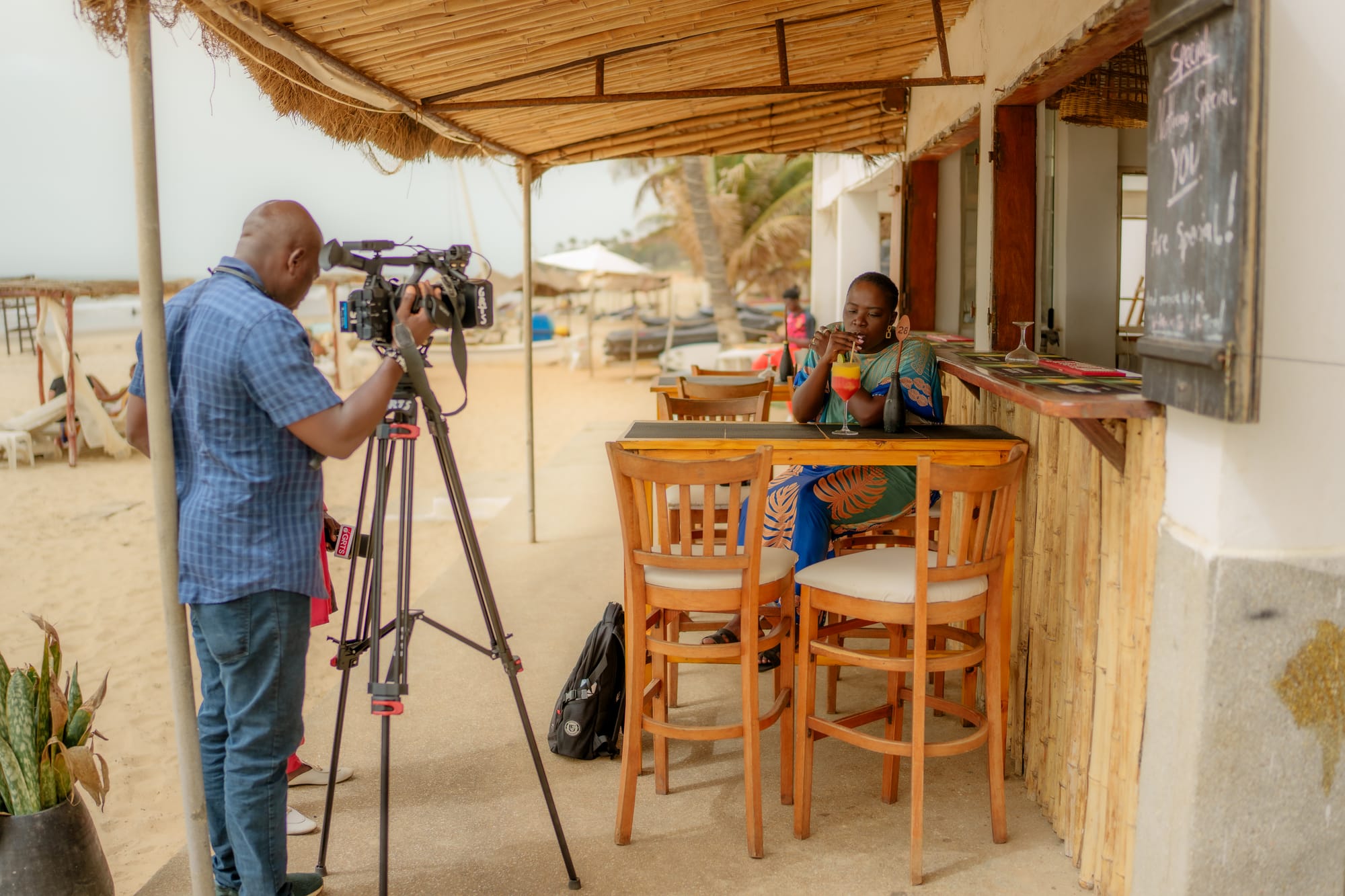
Great question. So, especially when it comes to the African narrative, you often hear people and see things written by people who don’t look like us. And I think the mistake we often make is not stepping up to tell our own stories. Why don’t we take ownership of our narrative? That’s really the heart behind this travel show, which is a collaboration with Africell—a telecom company, operating in The Gambia, Sierra Leone, Angola, and the DRC. It’s a joint project with them, and for me, it builds on the London to Lagos journey, which already covered a lot of West Africa. But this wasn’t just about driving, it was also about showcasing the continent. I remember sharing places like the Basilica in Yamoussoukro, Ivory Coast, the biggest church in the world, by the way, and people were shocked. I posted it and got comments like, “That’s not in Africa!” And I understood the reaction, because it’s so grand, so extravagant. it doesn’t fit the image people are used to seeing.
That’s what made me realise: there are so many hidden gems across Africa that rarely get spotlighted in mainstream media. So the question became, what can we do about that? And that’s how the idea for One Week In was born. The title itself comes from the idea, if you only had one week in a place, what should you see, eat, and do? There are some unique selling points to the show. First and foremost, it's about showcasing the continent in a positive, intentional light. Because let’s be honest, we get so much negative press. This is about balance, about offering a different lens through which to see Africa.
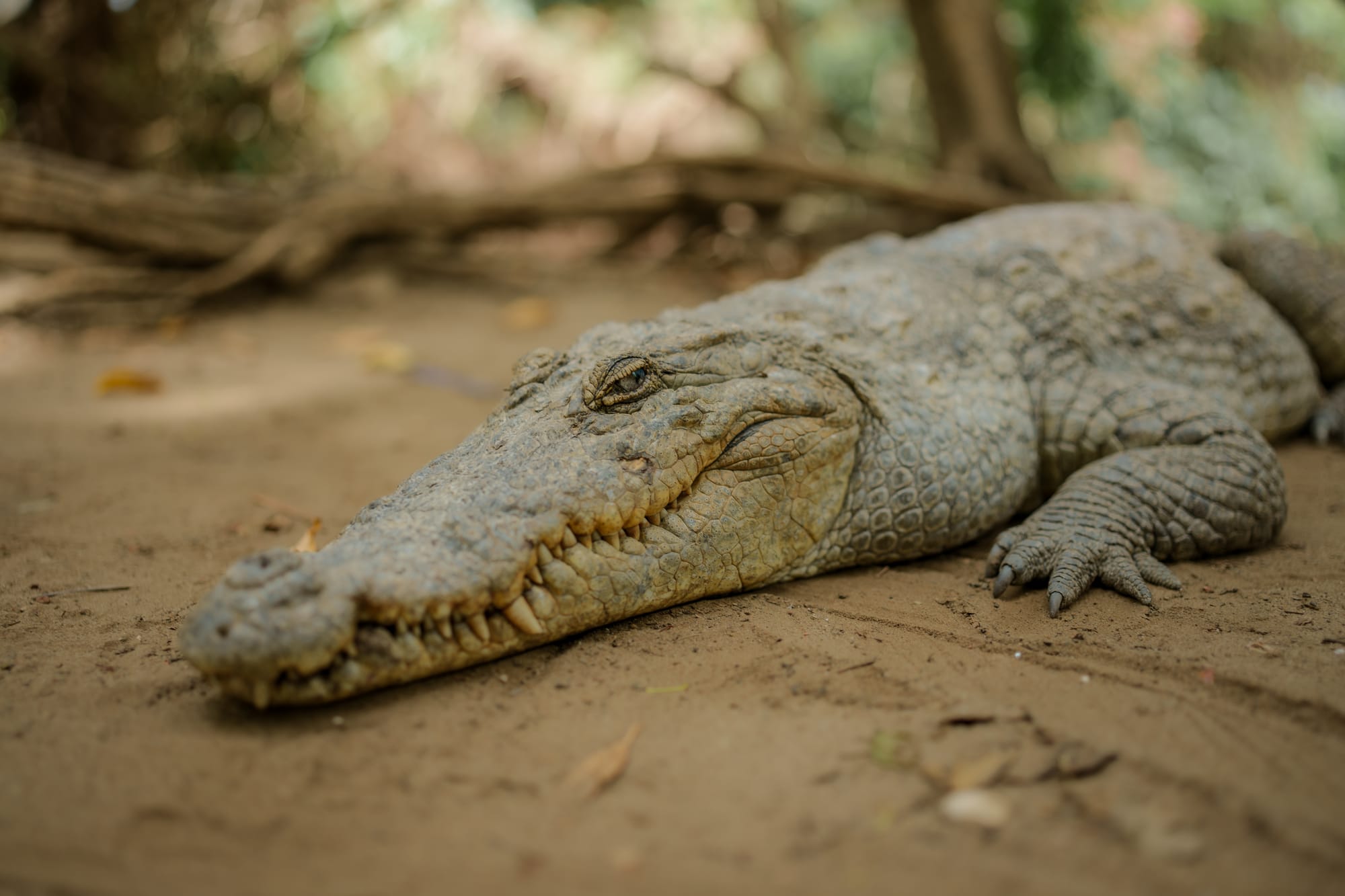
Number two is that it’s not about me coming in with a foreign perspective; it's about letting the locals tell their own stories. That was really important to me. So, in a lot of the episodes, I’m being shown around by a local, someone who takes me to their favourite spots to eat, places they love, and hidden gems that truly reflect the culture. That way, viewers get a real sense of cultural immersion when they watch. This project was deeply important to me. Right now, we’ve started with The Gambia and Sierra Leone, those are the ones going live first. But honestly, I’m hoping this is just the beginning. I’d love for this to become something of a lifelong project where I eventually cover all 54 African countries. A lot of people still think Africa is one big country, rather than a continent full of rich and diverse cultures. So, if we can build a kind of visual database, episodes of these different locations, with me exploring alongside locals, I really hope it inspires more people in the diaspora to visit. At our London premiere, that was some of the best feedback we received. People told me that just from watching the episode, The Gambia shot straight to the top of their bucket list. That’s the dream: more people from the diaspora and international audiences feeling drawn to explore and reconnect with the continent.
So, at its core, it's really about boosting tourism, because in many countries, tourism is one of the highest contributors to GDP. I wanted to encourage people to actually visit and, more importantly, shift the outdated and negative narratives that some people still have about travelling to African countries. You won’t get kidnapped, you won’t get killed. Those are just harmful stereotypes that need to go. Even for locals, this project had a big impact. When we premiered the show in The Gambia, I had grown adults telling me they had lived there their whole lives and didn’t know some of these places existed. Or maybe they’d heard of them, but never actually visited. But after seeing it visually, seeing it brought to life, they felt inspired to explore their own country. So, it’s not just about international tourism, but also encouraging local exploration. It’s definitely a work of love. A collaboration with an incredible brand. And I truly hope it’s just the beginning—one of many to come.
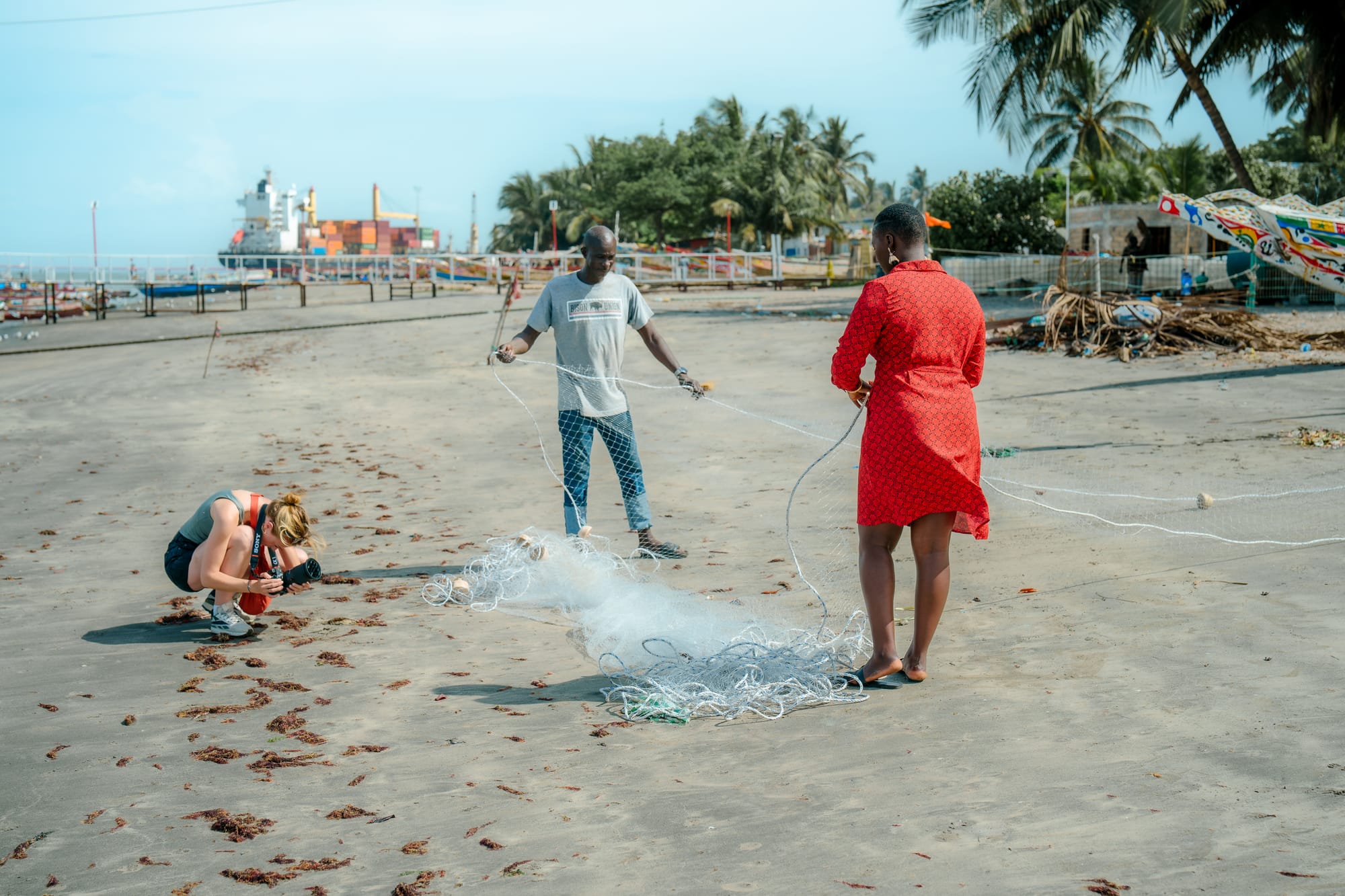
You mentioned that you wanted to change the narrative to be a positive one. What aspects of travel in Africa do you think are the most misunderstood?
It’s the people. It’s the culture. You know, when you travel to places, unfortunately, it just takes a few bad eggs for an entire country, or even a continent, to be judged unfairly. You might have a bad encounter with a corrupt officer, for example, but that doesn’t mean everyone is like that. Yet somehow, we’re rarely given the benefit of the doubt. What’s even more frustrating is that someone who doesn’t look like me, a content creator or influencer, can visit and share their version of a place, and that narrative gets accepted as truth. But that’s just one perspective, one lived experience. It’s not the full picture. That’s why I believe so deeply in us telling our own stories. Because there’s so much more to Africa than poverty. So much more than corruption. So much more than being lumped into a single monolithic identity.
You’ll hear people say, “I’m going to Africa,” but what does that even mean? Africa is a continent, not a country. You wouldn’t say, “I’m going to Europe,” without following it up with, “I’m visiting Italy”, or “I’m off to Paris.” But when it comes to Africa, it’s often just reduced to safari or struggle, and that’s the problem. There's so much richness here: the traditions, the trade, the daily lives of incredible people doing incredible things. So, yeah, this work is really about changing the message. It’s about educating people, showing that this continent is full of life, humanity, beauty, and diversity. And above all, reminding the world that these are real people, not just headlines or stereotypes.
It's important that we educate them that we’re much more than just a country. You've started with the Gambia; what would you say would be some of your most surprising or unexpected experiences in those locations?
The Gambia is small; you look at it on the map, and its shape is so unique. The entire country is practically wrapped around the Gambia River, which is central to its livelihood and identity. What makes it even more interesting is that, in the middle of so many French-speaking countries in West Africa, The Gambia stands out as one of the few that speaks English. For travellers like me coming from Nigeria or other English-speaking countries, that’s a huge plus, especially if you don’t speak French and want to explore West Africa without the language barrier. It makes The Gambia super accessible. But beyond language, I was struck by how much you can do there. For such a small country, you’d think it might get boring, but honestly, it’s the opposite. The beaches? Some of the best I’ve been to, perfect for anyone looking for a relaxed, chill vacation. If your vibe is rest, sunsets, and sea breeze, The Gambia is the spot.
Sierra Leone is much bigger, and there’s so much more to uncover, especially if you step outside the capital. Most people just stay in Freetown, but if you travel just three hours out, you’ll find Banana Island. It’s honestly like stumbling upon a hidden Maldives within Africa. Crystal clear waters, untouched beauty, it’s paradise. And then there’s the food. Chef’s kiss. Both The Gambia and Sierra Leone delivered in full. I’m not even going to lie, I added weight; everything was just too good to resist! And if you’re into adventure, Sierra Leone is packed with thrill, wildlife, nature, hikes, it’s a dream for the bold-hearted. What also stood out to me was the cultural overlap. Being in West Africa, you’ll see a lot of shared heritage, like similar dishes, but with little twists. Maybe they use palm oil where we wouldn’t in Nigeria. So it’s familiar, but fresh. And that contrast—the similarities and the differences—is what made exploring both countries so intriguing.
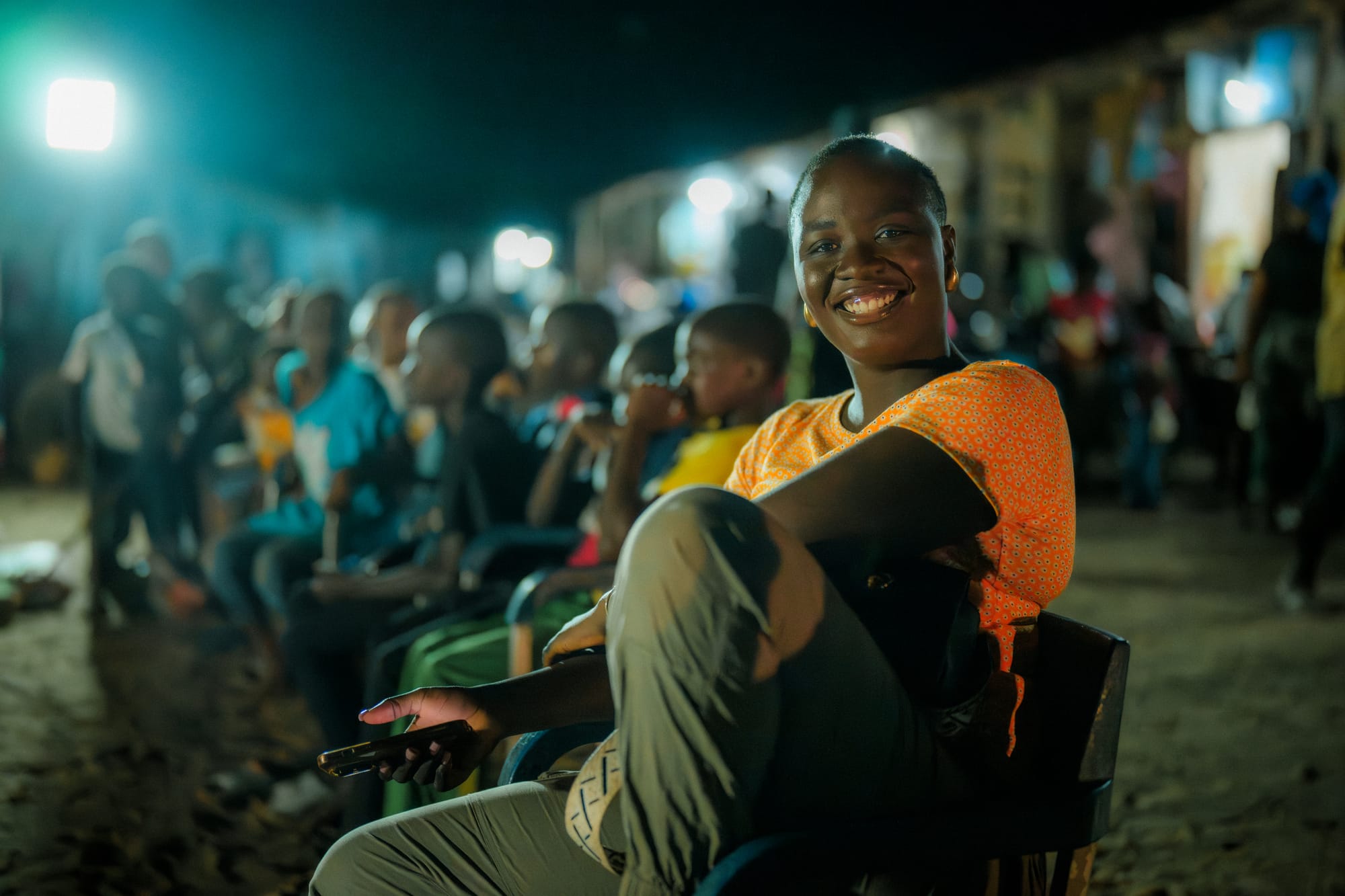
You've done the premiere in London and another in the Gambia. What was the response from both the diaspora and the local African community? What has that taught you, if anything?
I think there is definitely a need for this. The premiere in London was incredible, completely sold out, and the excitement was clear. People were eager to discover new destinations, and many people said they’d add Gambia to their bucket list. It’s often mentioned in the news, but usually in a negative light, so showcasing it in a positive way was refreshing. The production quality was top-notch, not at all low-grade. We used a full production company to bring it to life, and screening it on a cinema-sized screen really made it pop. My travel style leans heavily on storytelling, and this series definitely reflects that. It’s about taking the audience on a journey through a range of emotions. There are moments of fear, like when we explore legends and stories of dragons in the river, which is incredibly enchanting.
The series episodes are short, only 4 to 5 minutes each. In today’s world of fast-paced information, I wanted to make sure every second counted. As they say, it’s harder to write one page of a diary than ten, because you have to condense all the information into the most engaging and meaningful way possible. There’s no fluff; just the essentials that will captivate and inform. In total, there are five episodes, each around 4-5 minutes long, so you can watch the whole series in about 20 minutes. The format breaks down a typical day-by-day travel itinerary, giving a quick but thorough glimpse of the experience. For Gambia, the feedback was amazing, especially from locals who didn’t realise certain places existed or had heard about them but never made the effort to visit. We're hoping that by showcasing these local spots, locals will be inspired to visit them as well. For example, there’s a place called Baboon Island in Gambia, which is a preserved natural area. It’s almost like a day escape, where you can see mostly chimpanzees in their natural habitat. It's truly mesmerising and absolutely breathtaking. After seeing it, at least three or four people told me they were planning to visit Baboon Island, saying they never realised how beautiful it was in person. The feedback has been incredible, honestly.
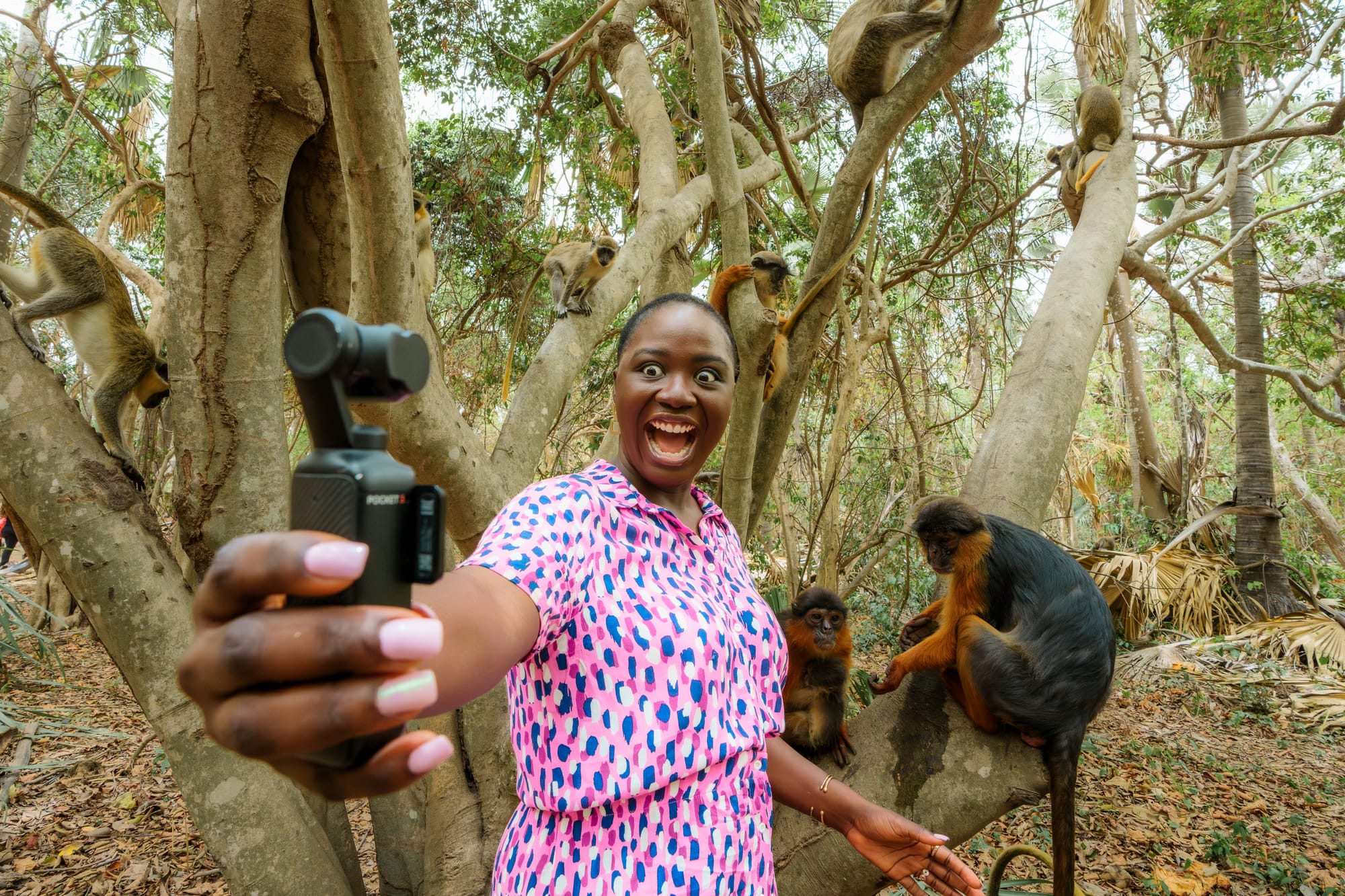
You mentioned how your storytelling plays a big role. Also that you always like to see it from a local point of view. How exactly do you approach storytelling when it comes to travel to make sure that it's authentic?
I don't sugarcoat anything. I tell people exactly what I see, without trying to rig the game or act. Maybe in the future I’ll dabble in acting, but for now, I’m just a host presenting things as they are. There's a lot of honesty in my approach. With London to Lagos, there was a lot of transparency about my emotions. My audience saw me cry, saw me get frustrated, and the same goes for this series. They saw me release turtles, something I had never done before. The excitement and freedom I felt as they made their way into the ocean were real, and people got to experience that with me. These are genuine human emotions. Being open about how I feel and allowing that to reflect on camera has really helped make the show relatable. I also make sure to ask questions that some people might be afraid to ask, like how the locals feel about being from their community and what their day-to-day life is like. Giving people the space to share their own stories has been one of the most powerful ways I’ve been able to make this work.
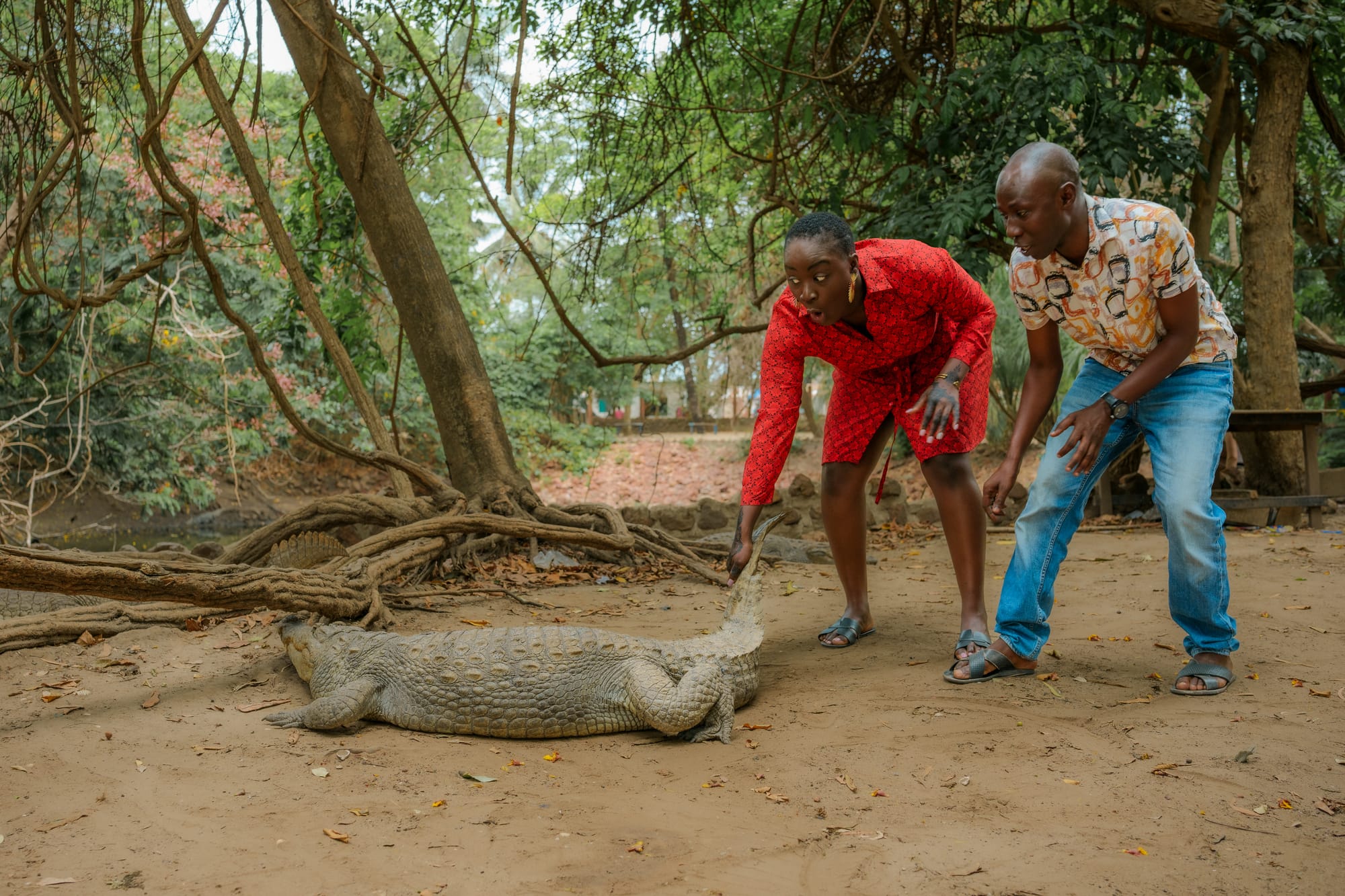
What would you say were some of the tougher moments from filming?
The schedule was honestly quite tough. I always tell people that this wasn’t one of those productions where we had a whole month in each destination and cherry-picked the best moments. It was a real, honest one week in each place. That meant no retakes, no set-building, and no making things look pretty for the camera. Some days, I was tired. We’d spend long hours filming with very short breaks in between. But that, in a way, mirrors the actual travel experience; sometimes it’s exhausting, unpredictable, and you just have to roll with it.
Most productions have the luxury of planning and polishing everything. But in this case, we didn’t. For example, one of our episodes was supposed to be about fishing in a local village, but when we got there, it was Sunday, and people don’t fish on Sundays. We couldn’t shoot the next day either because we were already moving on. So we had to plead with the locals, and they were so kind. They said, “You are our guest, we’ll try our best.” And with fishing, it’s not like you can force a catch. But miraculously, we did. It was a massive fish, bigger than my body! That moment felt so special because it unfolded naturally, not because it was staged. There was also a time I sprained my ankle coming down Sugarloaf Mountain. I still had a whole week of filming ahead. It wasn’t glamorous, I had to limp through some scenes, and the crew had to shoot me from the waist up just to hide it. But that’s part of the reality of travel. Things happen; plans go wrong, bodies get tired, and mishaps occur. And for me, showing that on camera was important. Being honest about those moments helps people understand that travel isn’t always picture-perfect, but it’s still worth it.
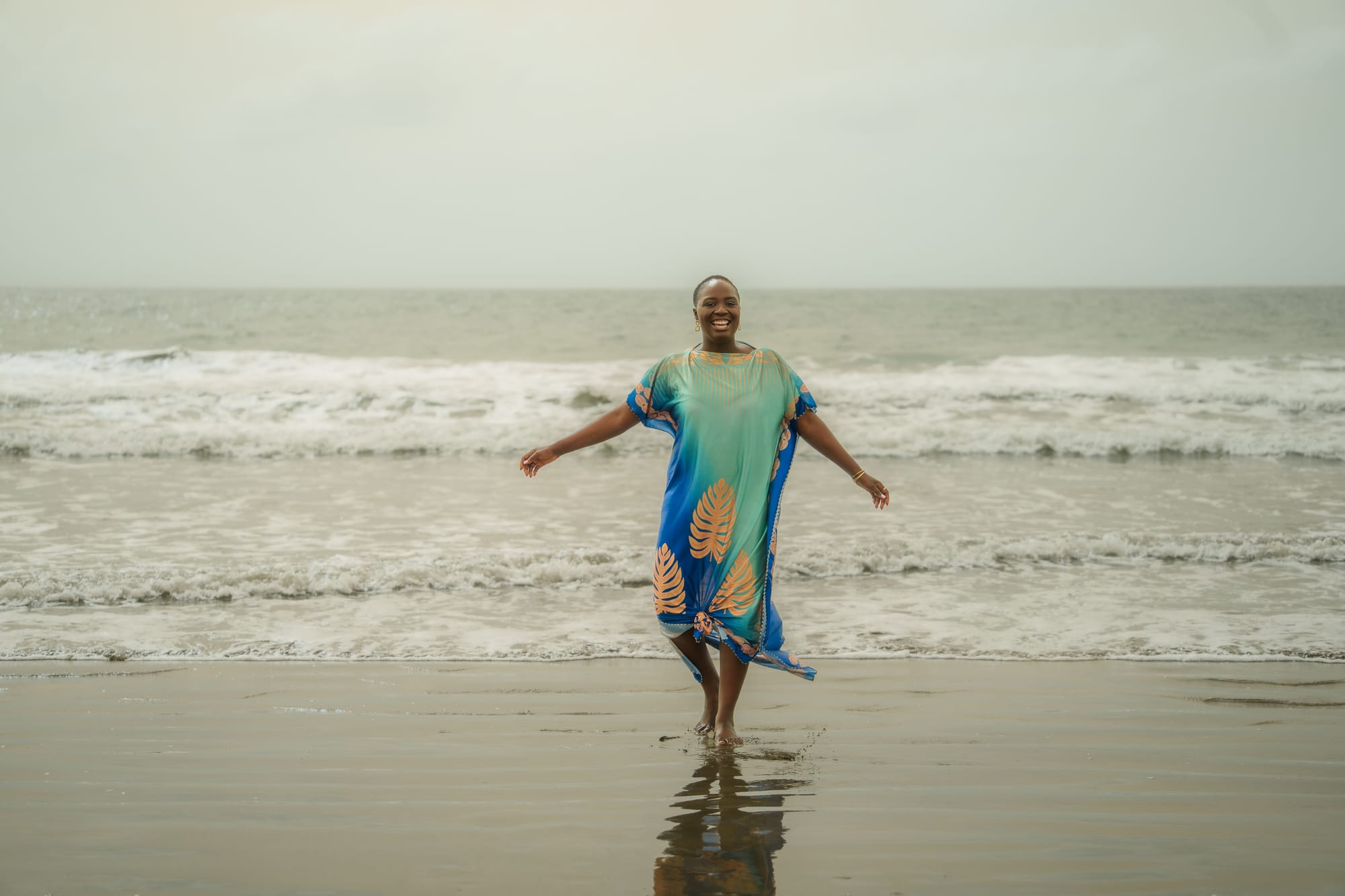
You started with the Gambia and Sierra Leone. What new countries do you want to explore next? And where do you see your content going years from now?
Like I said, this is a lifetime project for me. The goal is to eventually cover all 54 African countries. I think there’s so much value in having that kind of journey documented, especially in a format like a travel show or TV series. To my knowledge, no one’s done it quite like that before, and it’s something I would love to leave behind as a legacy. At the same time, I’m working on multiple projects. One of them is a podcast called Delusional Determination, where I take people on a journey, literally. We’ll have real, raw conversations while driving from one location to another. It still ties into travel, but it’s also about the people I meet, people doing incredible things around the world. The idea is to explore what it really takes to chase a dream and reflect on the ripple effect that one bold step can have. I mean, going from London to Lagos and now having my own travel show? Only God knows where I’ll be in a few years.
Travel is still very personal to me, too. I’ve got my own bucket list, I want to visit every single country in the world. I’m currently at country number 89, and Antarctica is on the list as my final continent. I’ve done six out of seven so far. So between my personal goals and all these creative projects, I’m just going with the flow and making things happen—one adventure at a time.
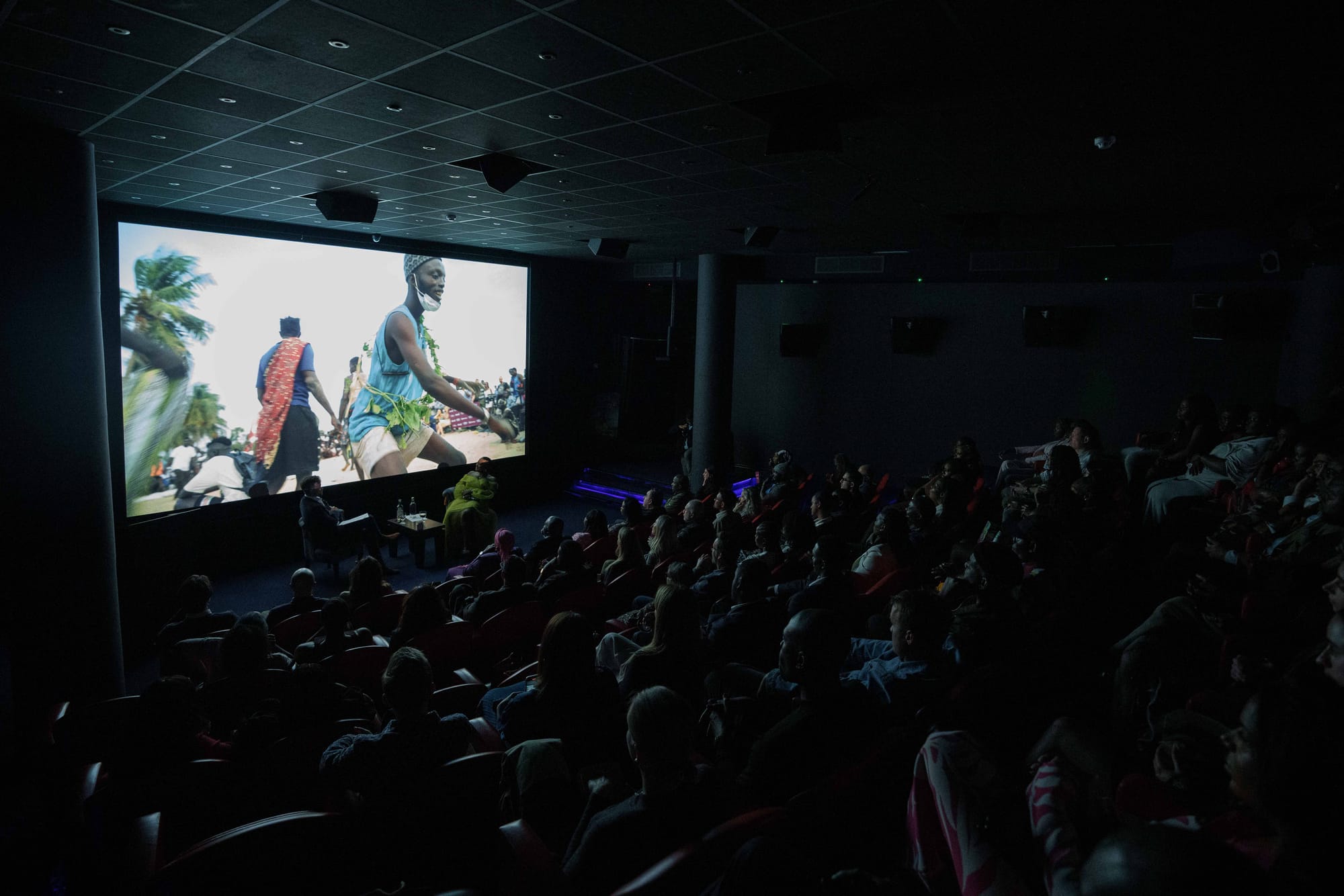
Does that mean that there'll ever be a day when you settle down, or will you always be on the move?
I think I’ll always be travelling, you know? But then again, they say never say never. I think “settling down” looks different for everyone; it really depends on how you choose to define it. My lifestyle has never exactly followed the conventional path, so I doubt it’ll suddenly become traditional overnight. There’s always been this part of my journey that might not make sense to others, but it makes complete sense to me. And honestly, with God’s help, I’m just taking it one day at a time, focused on building a legacy that outlives me. So yes, I will settle down… but it probably won’t look like what most people expect. And I’m okay with that.
Being an African woman in the travel space can be tough. How have you navigated that, and what sort of hope and empowerment can you bring to women who want to travel the world?
Yeah, I always say that I just hope my lifestyle encourages other people to be audacious, to be brave. I wasn’t born with a silver spoon, but I do recognise that I have certain privileges. For example, I have passport privilege—I travel with both my Nigerian and British passports. So I understand the struggles people face with low-mobility passports. That’s the first thing. Second, I just want to show people that you don’t have to live the most conventional life. I think, especially as women, we’re often boxed into what we can or cannot do, and breaking those boundaries has become one of my life’s biggest goals. One of my mantras is: the magic is in the doing. I really want to encourage people to take action. So many people get stuck in the cycle of waiting for the perfect time, perfect tools, perfect circumstances. But I always tell people, I used Lumi, my car that I drove from London to Lagos, because that’s what I had. I’ve had her for five years. Everyone said I needed a 4x4 or something newer and stronger, but I just went with what was in my hands. And that’s the message I try to share, you don’t need everything to be perfect to begin. You just need to begin. You don’t have to have it all figured out as long as you take action. Fail fast, learn faster. I don’t see failure as the opposite of success; I see it as part of the journey. Something you have to go through to grow. You get better over time.
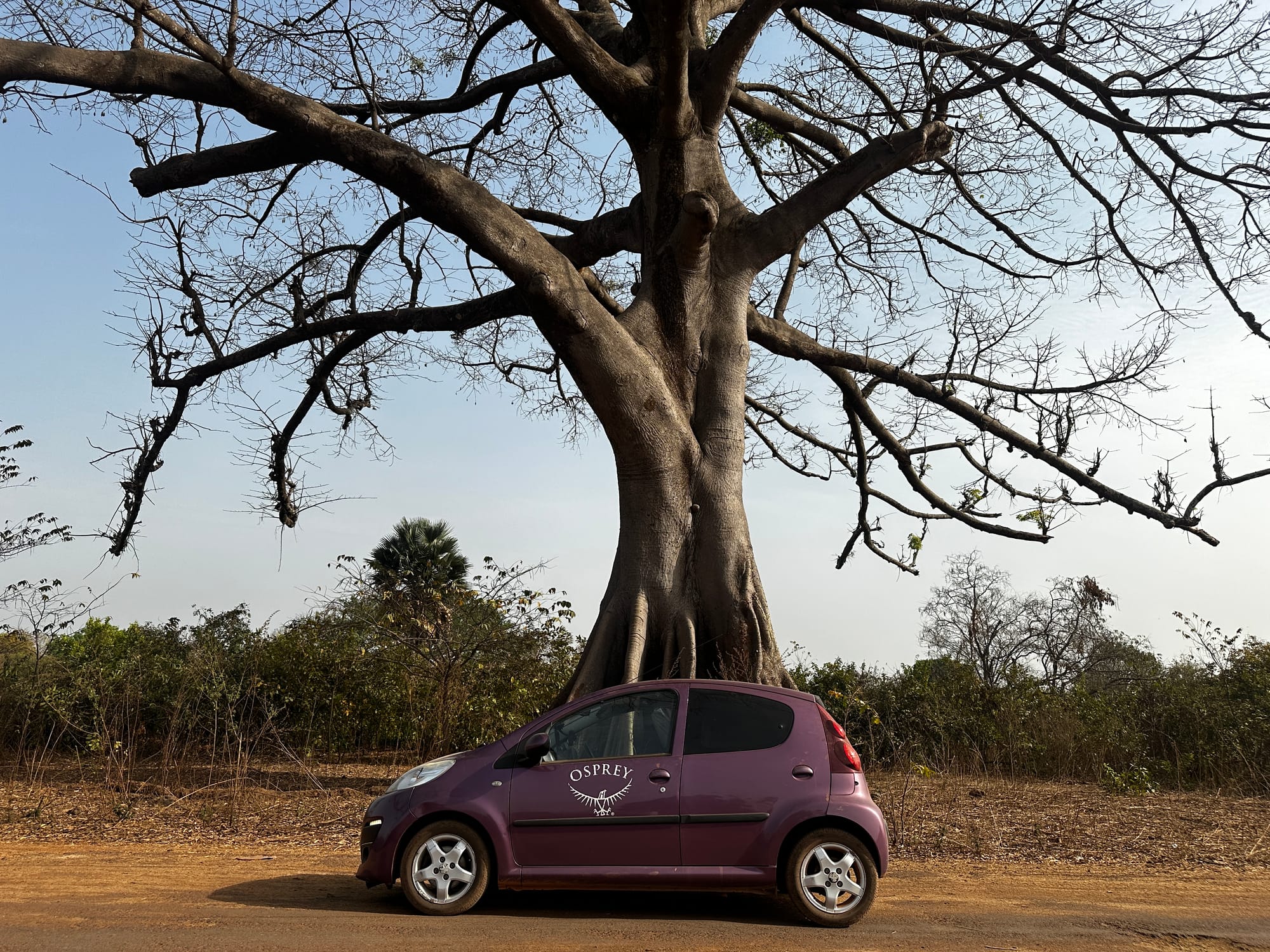
Funny story with this travel show; it’s a collaboration with Africell, but I actually got cast for a completely different role at first. I didn’t get that role. But out of that "no," this whole new series was born. It became something even better, something co-created from scratch. That’s the thing, sometimes a “no” just redirects you to something greater. I think a lot of people assume everyone else has it all figured out. But the truth is, most of us are just winging it, trying things, and hoping they land. And honestly, that’s okay. So yeah, I hope that when people see my journey, they realise this is just someone who played the cards she was dealt and kept playing. Because the truth is, if you don’t stop, you can’t fail. That’s really it. If you don’t stop, you can’t fail.
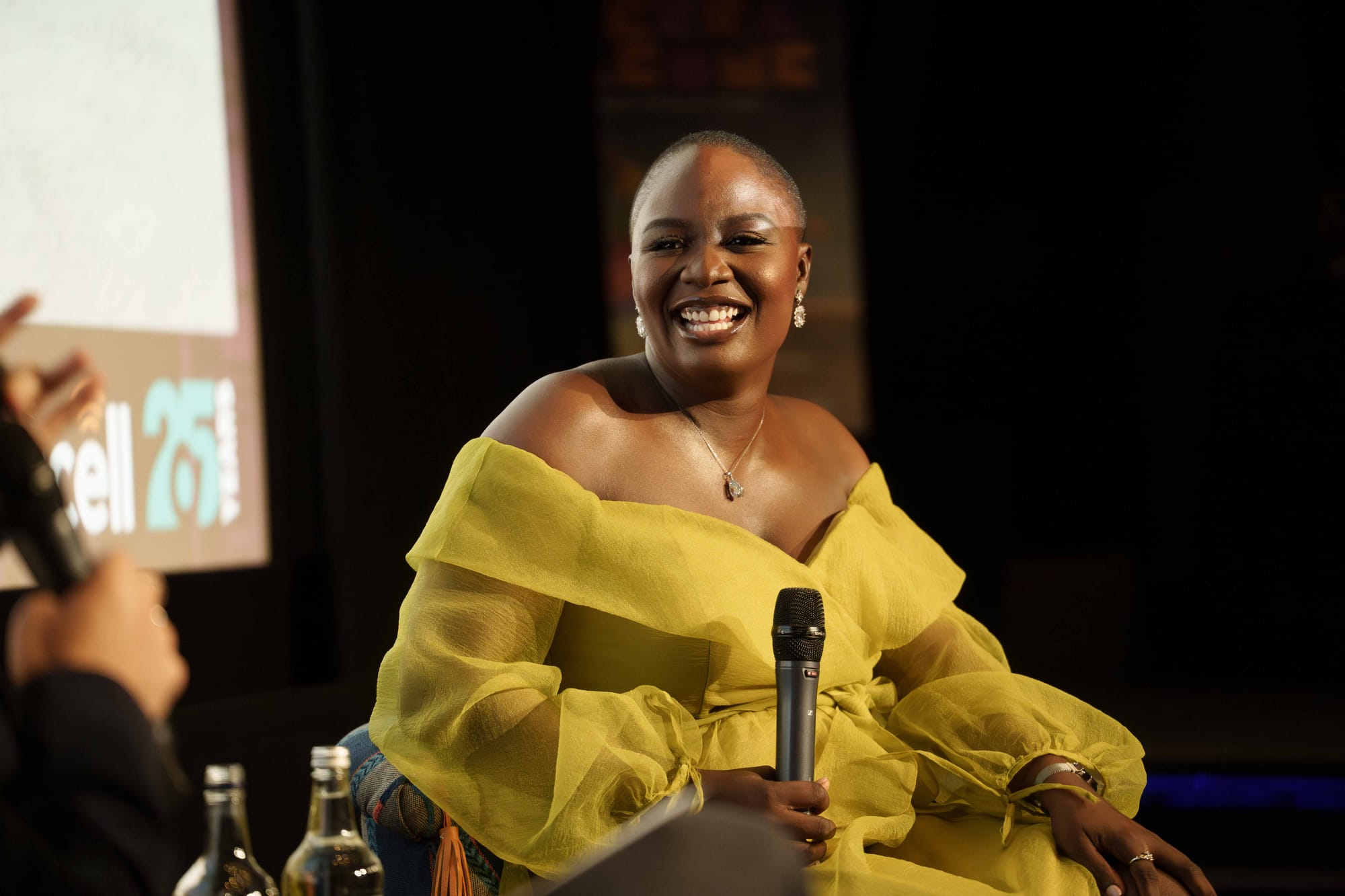
Thank you for sharing that. My last question would be, where can people watch your show?
The show will be airing exclusively on Africell Holding’s YouTube channel as a weekly series. The very first episode dropped on the 9th of April, 2025 and after that, a new episode will go live every Wednesday. So you can always catch up there if you miss one! I’ll also be sharing behind-the-scenes moments, teasers, and some fun bits on socials so you can follow along with the journey in real-time.
It was so lovely to have this conversation with you! I’m excited to watch the show.

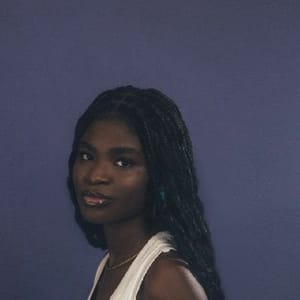
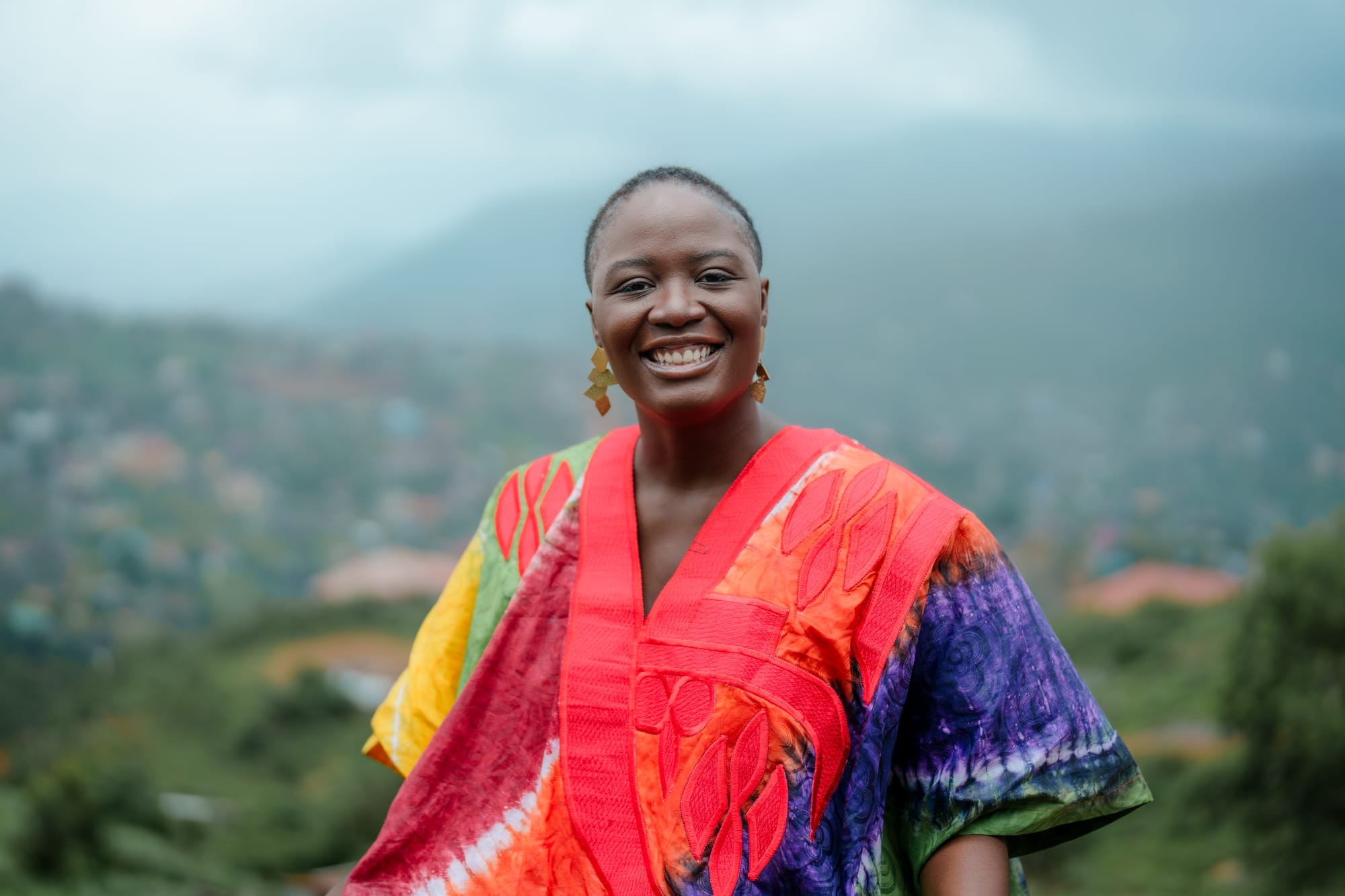
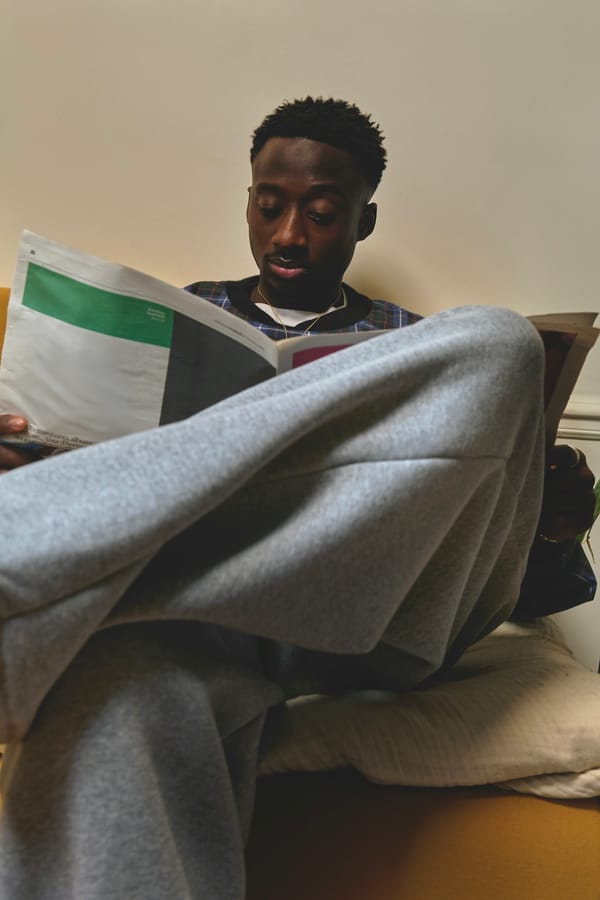
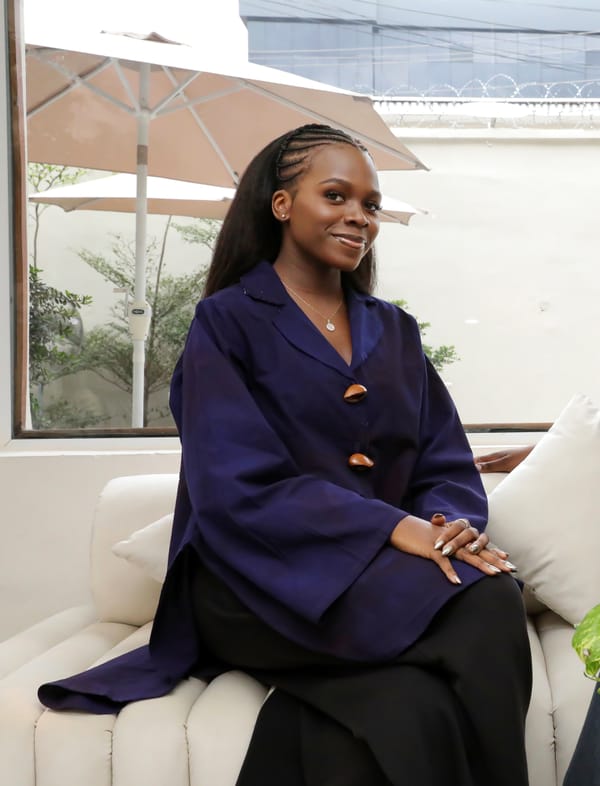
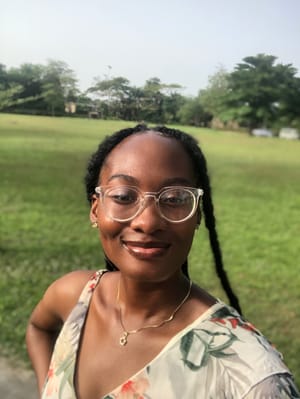
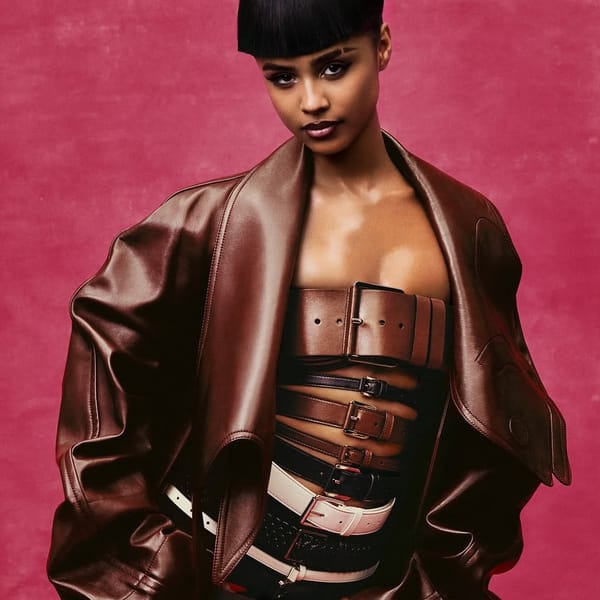
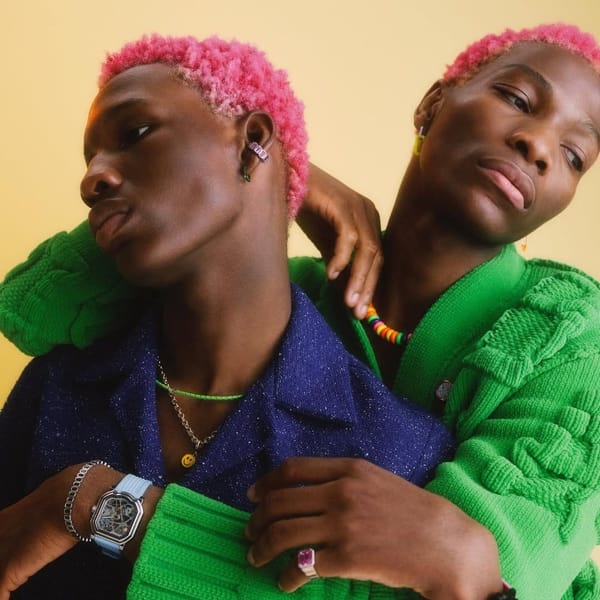
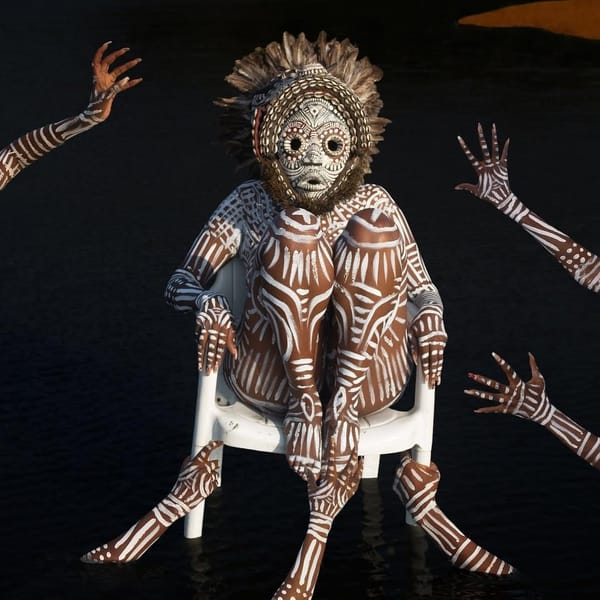
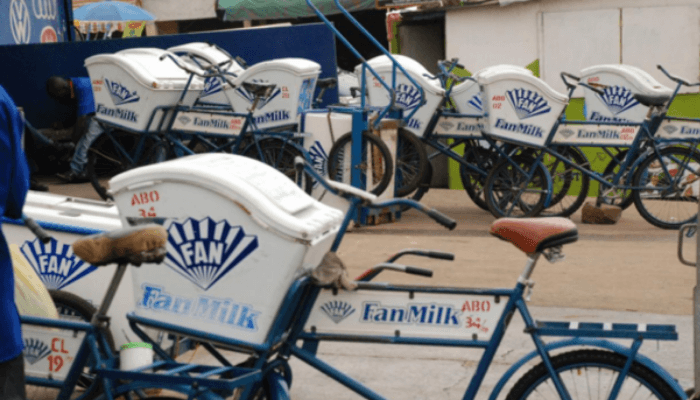
Member discussion